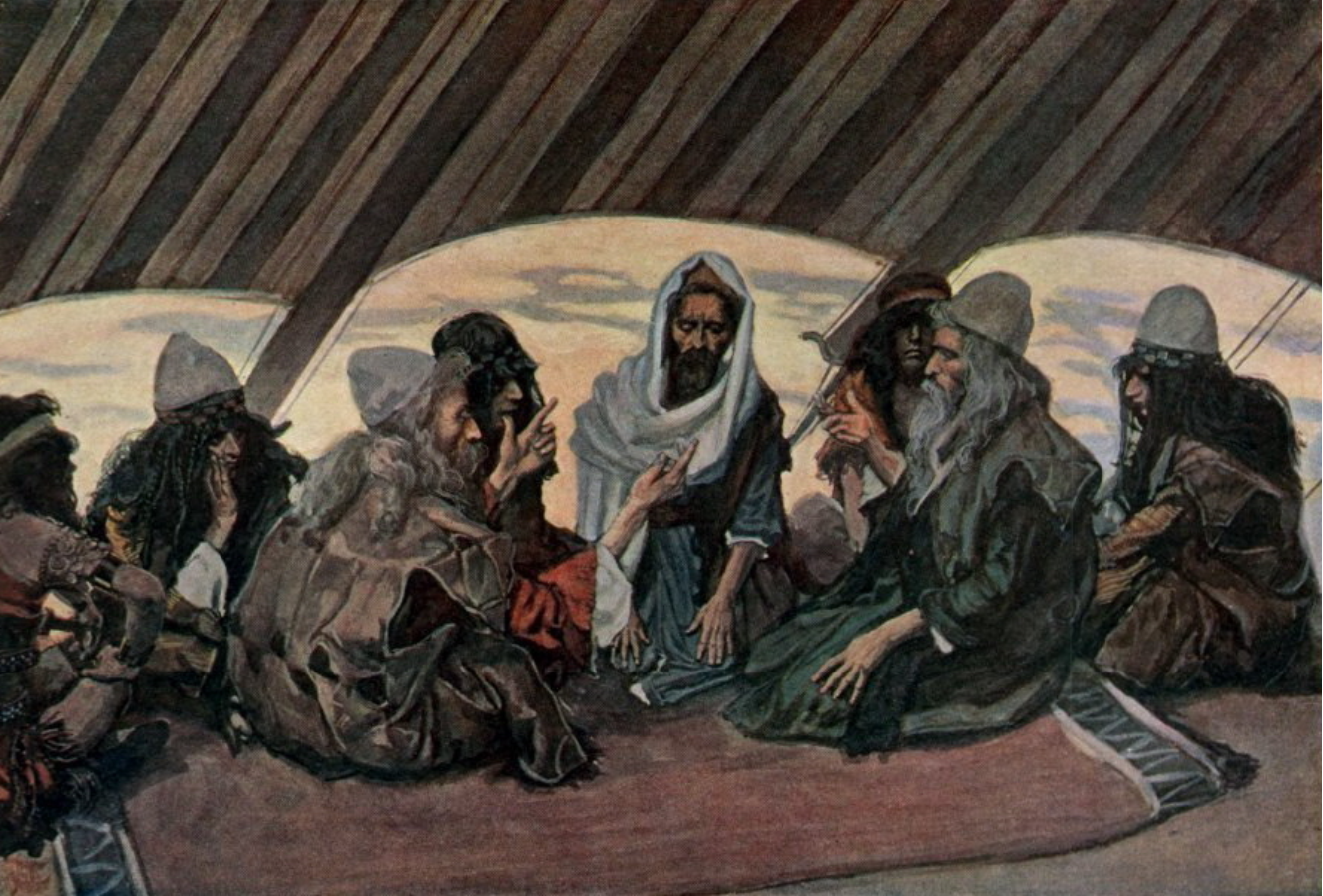Commentary on Parashat Yitro, Exodus 18:1-20:23
Moses was deprived of a father for much of his young life. Raised by his mother and Pharaoh’s daughter and protected by Miriam, his older sister, he only experienced motherly love. It wasn’t until Moses fled to Midian that he found an adult male mentor who grew to love him as a father and became even more like a father when he married his daughter Zipporah. Moses remained with Jethro to shepherd his flocks for decades. Then he returned to Egypt to lead the Israelites to freedom, leaving behind his father-in-law.
In the opening verse of Yitro, Jethro hears about Moses’ success in liberating the Israelites from slavery in Egypt. Along with Moses’ wife Zipporah and their sons, who Moses had sent back to live with Jethro during his battle for the Israelites’ liberation. Jethro comes out to greet Moses, rejoicing with him in his victory over Pharaoh.
But upon arrival in the wilderness, Jethro is soon appalled by Moses’ inefficient administration of Israelite justice. Because Moses acts as the sole judge of the people, people wait in line for hours for a ruling. And Moses seems at risk of burnout. Jethro, an experienced chieftain, lovingly rebukes his son-in-law, saying: “The thing you are doing is not good. You will surely wear yourself out, and these people as well. For the task is too heavy for you; you cannot do it alone.” Jethro then gives Moses detailed instructions for establishing a judicial system, urging him to appoint judges to resolve minor disputes among the people, leaving Moses to resolve only the major ones. He teaches Moses that a good leader must delegate.
Yet later in Deuteronomy, long after Jethro has died, an elderly Moses delivers his long address to the Israelites before they enter the promised land. There, he presents the idea of establishing courts as his own. Did Moses forget about his father-in-law’s involvement? Or did an enlarged ego leave no room for Jethro in his memory?

Help us keep Jewish knowledge accessible to millions of people around the world.
Your donation to My Jewish Learning fuels endless journeys of Jewish discovery. With your help, My Jewish Learning can continue to provide nonstop opportunities for learning, connection and growth.
These seem to me unlikely possibilities. Moses looked up to Jethro, his only older male role model, and asked him for help guiding the Israelites through the wilderness. Jethro, in turn, treated Moses as a son — and made him a son-in-law. More plausibly, Moses’ recollection of a decades-old conversation was hazy. As the years passed, he may have embraced the idea as his own — which was partially true, as Moses did implement it. Or he may have grown to see the wisdom in Jethro’s advice, and Jethro’s influence became completely a part of him.
Some of us may have similar experiences after losing a loved one. We recall experiences together, but who gets “the credit” for the details of our shared ventures is no longer clear — and perhaps no longer important. We pay tribute to our loved ones by allowing their influence to live on through us, to have them become so much a part of us that we don’t always remember where our ideas end and theirs begin. Death is exquisitely painful in part because it puts an end to shared experiences that we had hoped to have together in the future. Nothing replaces those losses, but our loved ones live on not just in how we remember them but in how they have transformed us.
This article initially appeared in My Jewish Learning’s Reading Torah Through Grief newsletter on Feb. 10, 2023. To sign up to receive this newsletter each week in your inbox, click here.
Looking for a way to say Mourner’s Kaddish in a minyan? My Jewish Learning’s daily online minyan gives mourners and others an opportunity to say Kaddish in community and learn from leading rabbis.



